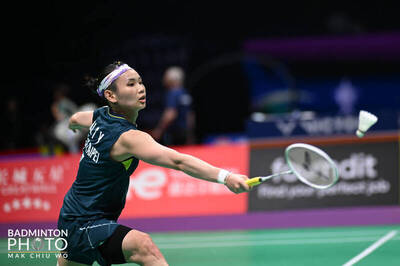《TAIPEI TIMES》 Memorial hall a mirror of Taipei’s values: commission

The front gate to Liberty Square frames the Chiang Kai-shek Memorial Hall in Taipei on Oct. 28 last year. Photo: Chen Yu-hsun, Taipei Times
WRONG MESSAGE: The nation should not use its resources to remember someone who personally persecuted thousands, the justice agency said
By Chen Yu-fu and Kayleigh Madjar / Staff reporter, with staff writer
The way a nation utilizes the heart of its capital reflects its values, the Transitional Justice Commission said in its proposal for transforming Taipei’s Chiang Kai-shek Memorial Hall, asking what message it sends if the person responsible for persecuting thousands is still commemorated just like he had been under authoritarian rule.
The commission on Wednesday last week announced initial plans for erasing traces of authoritarianism from the memorial hall, starting with its “axis of worship,” or the 6.3m-tall bronze statue of Chiang Kai-shek (蔣介石) in the main building.
There are at least two main reasons for transforming the complex, the commission said.
The first is a matter of principle, as democracies should not commemorate authoritarian rulers on the same scale and in the same way that they were honored in the past, it said.
The second reason is more practical, as the way in which a nation utilizes the center of its capital reflects its values at different moments in time, it said.
“The nation should not be spending so many resources to commemorate an authoritarian ruler,” the commission said, adding that original plans for the space did not even include a memorial hall.
From the 1880s, the 75,000 ping (247,934m2) area was used as military grounds, it said.
In 1971, the Executive Yuan proposed building a commercial center to showcase the nation’s modernization and economic development, the commission said.
It was only after Chiang’s death four years later that the government decided to build the memorial instead, utilizing traditional Chinese architectural elements in a reflection of party ideology, it said.
The commission also questioned maintaining the memorial.
Under the party-state system created by Chiang, all political and military power was controlled by one individual, the commission said.
Of the 7,822 people implicated for political crimes during his rule, Chiang exercised his right to personally review 3,469 cases, it said, adding that more than 60 percent were handed heavy sentences and 27.69 percent were sentenced to death.
Even though he did not rule on every case himself, past research has shown that he still heavily influenced judgements, as he had the final say in any political cases, causing lower-ranking officials to try and pre-empt his desires.
Considering the pain he caused, what message is being conveyed to the next generation by using public funds to maintain a memorial to Chiang, even long after democratization, the commission asked.
The memorial should be given back to the people and reinterpreted to inspire education about the nation’s past, it added.
新聞來源:TAIPEI TIMES













